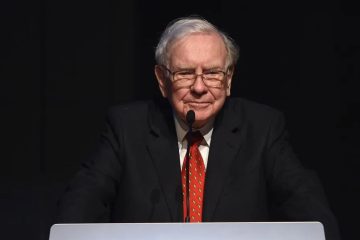If you stayed inside against today’s cold weather, cable television was probably your best friend. Now two cable giants think they can hook up and be even better friends. Today I’ll tell you who they are — and why they might be wrong.
The stock market benchmarks ended slightly higher, but they look much better than a week ago. A couple more good days could bring the S&P 500 back over its January high. Probably not tomorrow, though; many traders will take off ahead of the holiday weekend.
Let’s see what’s on TV …
***
Despite endless Internet distractions, Americans still love our televisions. Few homes are without one (or more), and for most of us that means cable service.
Comcast (CMCSA) just agreed to acquire rival Time Warner (TWC) for $ 45.2 billion. The combination will serve about one-third of all U.S. cable customers.
A behind-the-scenes TWC bidding war has been going on for months. Comcast beat out Charter Communications (CHTR). TWC held out for a better price — and Comcast came through.

The price is an exchange of shares instead of cash. Current TWC shareholders will receive 2.875 Comcast shares for each Time Warner share. It works out to about $ 158.82 per share — about 17.4% above where Time Warner closed yesterday.
Today TWC rose only +7.0% to $ 144.80 by the close. Why did they not go up to the full takeover price?
***
The answer: Some people doubt the deal will go through. The federal government reviews big acquisitions to make sure they won’t create monopolies and hurt consumers.
Comcast-TWC will be a potent combination. The companies would not be doing the deal if they thought otherwise. They stress that they don’t compete head-to-head in many geographic areas.
Both companies say there will still be plenty of competition. Comcast even offered to divest up to 3 million customers to reduce its market share below 30%. Charter or some other company would likely buy those accounts.
The challenge isn’t that simple, though. The TV business is changing. Cable service as we know it may not exist five years from now.
***
Comcast made another big acquisition last year when it bought full ownership of NBC Universal. The cable company now owns several of the networks it distributes, including NBC, CNBC, MSNBC,SyFy, E! and USA.
In business school, we called this “vertical integration.” Comcast is both manufacturing a product (TV programs) and selling it to consumers (Comcast cable subscribers).
Conventional wisdom used to say vertical integration is a bad idea and companies should focus on one thing. That may be changing. It certainly complicates the regulatory review.
A combined Comcast-Time Warner might not raise prices for consumers, but it could squeeze other content providers. Comcast is simultaneously buying content from other studios, and competing against those same studios with NBC Universal programming.
If regulators block the deal, I bet it will be over something like this.
***
Cable companies face a whole different threat, too. More and more consumers are “cutting the cord” with streaming video services like Netflix (NFLX). They use your home Internet to let you watch online videos on your big-screen TV.
Cord-cutting is a growing trend. If you have reliable broadband service, adding Netflix, Roku andHulu Plus will match most of what cable offers for a fraction of the price.
Live news or sports are the last pieces of the puzzle. Notice how Comcast-owned NBC has made it very difficult to watch the Olympics online. That’s no accident.
Streaming video is a real threat to Comcast. I think integrating with Time Warner is partly self-defense.
I’m curious how other people see this. Have you thought about “cutting the cord” on cable TV, or actually done it? How much money are you saving, and what did you have to give up?Click here and tell me by e-mail.
***
Here is a reader reply to my Wednesday Crude Flowing Through Keystone story.
Reader Richard B. says: “If Keystone gets built, who is going to clean up the effects of an oil spill into our biggest aquifer? It will happen.
“Will all of you profit-above-everything-else types mitigate the effects on everyday people? Somehow, I doubt it. You’ll just shrug, sell and look for the next profit opportunity. And a ruined water supply will just be an oh-well.”
Brad: Thanks for writing, Richard. I wasn’t trying to take a position either way on any future Keystone construction. My point was that part of the network is already online and affecting the energy markets.
The future construction plans are getting a thorough review by experts. President Obama will decide whether the rest of Keystone goes forward. I can only hope he listens to the people and makes the right choice.
What do you think of Keystone? Will it harm the environment or help the economy? Can it possibly do both?
Send me your opinion and I’ll publish some examples.
***
Here is the Thursday wrap-up…
- The Comcast-TWC deal sparked a broader rally, with some traders predicting an acquisition wave. All three benchmarks closed higher.
- Snow in Washington could not stop federal number-crunchers from issuing their January retail sales report this morning.
- Wall Street economists had predicted no change, but the actual report showed a -0.4% droplast month. Auto sales were the biggest culprit.
- In earnings news, Applied Materials (AMAT) climbed +5.4% after reporting excellent quarterly profits.
- Cisco Systems (CSCO) declined -2.5% after disappointing results and a discouraging forecast from CEO John Chambers.
- Whole Foods Market (WFM) sank -7.3% today. The organic grocer faces slower growth in a saturated market.
- Goodyear Tire & Rubber (GT) zoomed +11.5% higher after beating earnings estimates by a mile.
- Fed chair Janet Yellen was supposed to testify to the Senate today, but the monster snowstorm sent the legislators scurrying for cover.
- Perhaps not coincidentally, gold futures closed over $ 1,300 in New York trading today. See what happens when the Fed gets snowed in?








